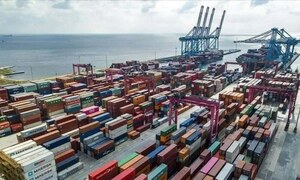 Russian technology giant Yandex wants to launch a worldwide fleet of 'robotaxis' using its driverless car software and thinks this is possible within a few years, the company's head of driverless cars Dmitry Polishchuk told Reuters.
Russian technology giant Yandex wants to launch a worldwide fleet of 'robotaxis' using its driverless car software and thinks this is possible within a few years, the company's head of driverless cars Dmitry Polishchuk told Reuters.
Yandex, which provides an array of online services including ride-hailing and food delivery services, began testing its driverless car technology in 2017 and continues to do so in Moscow and Israel, with a licence to begin testing in the United States from June 2020.
It is competing to build technology that could operate alongside that of ride-hailing firms, such as Lyft and Uber, and provide driverless taxi services globally. "We at Yandex believe that this is a potentially huge business," said Polishchuk, emphasising that Yandex will not be creating driverless cars, but a system that can be installed in a car.
Yandex has so far spent 2.2 billion roubles ($29.5 million)on the development of its technology. That is much less than the billions of dollars invested by some competitors, which include Google's parent company Alphabet and Apple , as well as several automobile companies.
Charging people to travel in driverless taxis is not yet legal anywhere, but some US states allow cars to operate without a driver behind the wheel. In Israel and some Russian cities, driverless cars are legal as long as a driver sits behind the wheel and controls the process.
The United States is one of the best prepared countries for autonomous vehicles, along with the likes of the Netherlands and Singapore, with Israel and Russia lagging slightly behind, according to KPMG's 2019 Autonomous Vehicles Readiness Index.
SIGHTS SET ON US Polishchuk said Yandex wants to add the service to its Russian-based Yandex.Taxi fleet if regulations permit, but also roll it out in other countries, namely the United States, where he said driverless car regulation was more progressive.
"For us, applying the technology outside of our domestic market is much more interesting," said Polishchuk. "This is potentially an opportunity for Yandex to enter the international market.
"Everything is heading towards the point where this year, I believe, it will be possible for companies to charge money to take passengers in driverless taxis in the United States." The company's driverless car fleet of 110 vehicles from different automobile manufacturers has already covered 2.8 million kilometres.
The cost of the equipment needed to build driverless car systems has more than halved in the last three years, Polishchuk said, adding that its 'robotaxi' technology was already cheaper than a human alternative.





















Comments
Comments are closed.